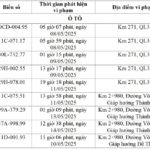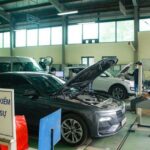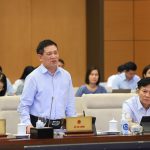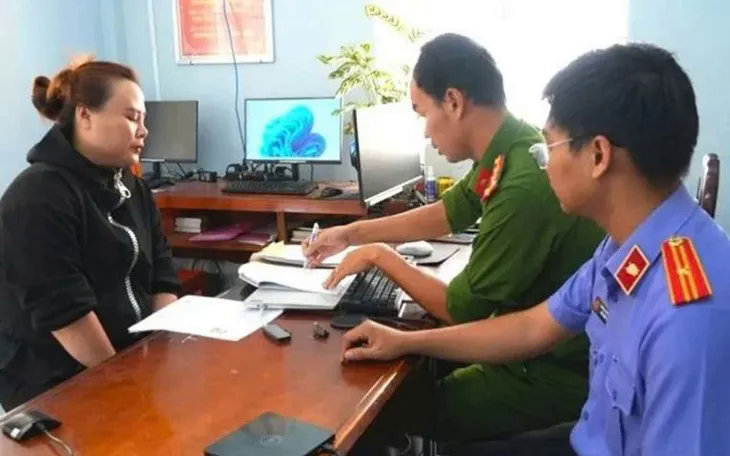
The People’s Committee at the provincial level has been assigned to carry out various tasks, including training and issuing safety inspection certificates for road traffic, as well as issuing and re-issuing various types of international transport licenses.
The government has recently issued Decree 144/2025, which outlines the decentralization of authority in the field of construction management. This decree, along with several related decrees, expands the authority of the Ministry of Construction in transportation infrastructure planning and management while delegating specific tasks to the provincial People’s Committees in the fields of road, maritime, railway, and inland waterway transport, as well as vehicle inspection.
Expanded Authority in Planning
In the road transport sector, the Minister of Construction is authorized to approve road network planning and infrastructure, as well as assign national highway routes and sections based on proposals from the provincial People’s Committees. This ensures alignment with socio-economic development, national defense, and local resource mobilization.
In the maritime domain, the Minister holds the power to approve master plans and detailed plans for port systems, wharves, buoys, waters, and dry ports. They also decide on port classification and publish a list of ports, in addition to setting out the distance and scope of protection for maritime works.
When it comes to inland waterways, the Minister of Construction is responsible for approving waterway protection corridors and infrastructure planning. For railways, the Minister has the authority to decide on the dismantling of national railway lines and sections, while the dismantling of urban railways falls under the jurisdiction of the provincial People’s Committee Chairpersons.
In the field of vehicle inspection, the Ministry of Construction can determine the age of watercraft permitted for import in special cases as outlined in Decree 111/2014.
Decentralization of Transport Management to Local Governments
At the local level, the provincial People’s Committees have been entrusted with a range of responsibilities. In road transport, they conduct training and issue safety inspection certificates, as well as handle the issuance and re-issuance of various international transport licenses. They also take the lead in notifying the operation and modification of fixed passenger transport routes with neighboring countries such as China, Laos, and Cambodia.
For urban railways, the provincial People’s Committees have the authority to dismantle lines, sections, and stations, as well as approve the construction of level crossings and related infrastructure. They also provide support for the operation of social welfare trains.
In the maritime and inland waterway sectors, the Committees are responsible for licensing, halting operations, and approving plans for ship-breaking facilities. They also authorize the operation of submersibles and issue licenses for seafarers and watercraft operators. Additionally, they handle the naming and renaming of ports, waters, and regions, a task previously undertaken by the Ministry of Construction or specialized bureaus.
Reducing the Authority of Specialized Bureaus
According to the new decree, the Vietnam Maritime and Inland Waterways Bureau is no longer responsible for procedures such as port closure announcements, import license issuance, and port operation eligibility certification. They also no longer handle temporary port extension procedures, seal removal approvals, or waste and wastewater discharge requests.
The Vietnam Vehicle Inspection Bureau no longer recognizes or revokes notifications of eligibility for ship construction, conversion, or repair facilities. Businesses can only operate if they meet the conditions set out in Decree 111/2016, with inspections carried out by the provincial People’s Committees.
This adjustment in decentralization aims to streamline processes, enhance local management, and empower local governments in transport development. However, it also raises the bar for provincial capabilities, accountability, and transparent oversight.
The Rush for Vehicle Inspections in Hanoi as the Year Comes to a Close
In December, vehicle inspections ramped up across Hanoi as numerous testing centers experienced a surge in cars ahead of the year-end rush.





















